Mouth Tape: What Is Mouth Tape? Is it Safe? Is It Good for Sleep?
Mouth tape has recently become a viral trend, gaining traction in the functional health community because of its
many health benefits, particularly for sleep. But, despite seeming like a new and novel idea, mouth
tape
is a reasonably well-established phenomenon that many health practitioners (like us) have been promoting for years!
In this article, we explore what mouth tape is, why people practice mouth taping, how mouth taping can promote
better health, improved sleep, more energy, immune strength, a more defined jawline, improved oral health and more. We also discuss what
many proponents of mouth tape get wrong and why it isn't necessarily the silver bullet
that so many proclaim it to be.
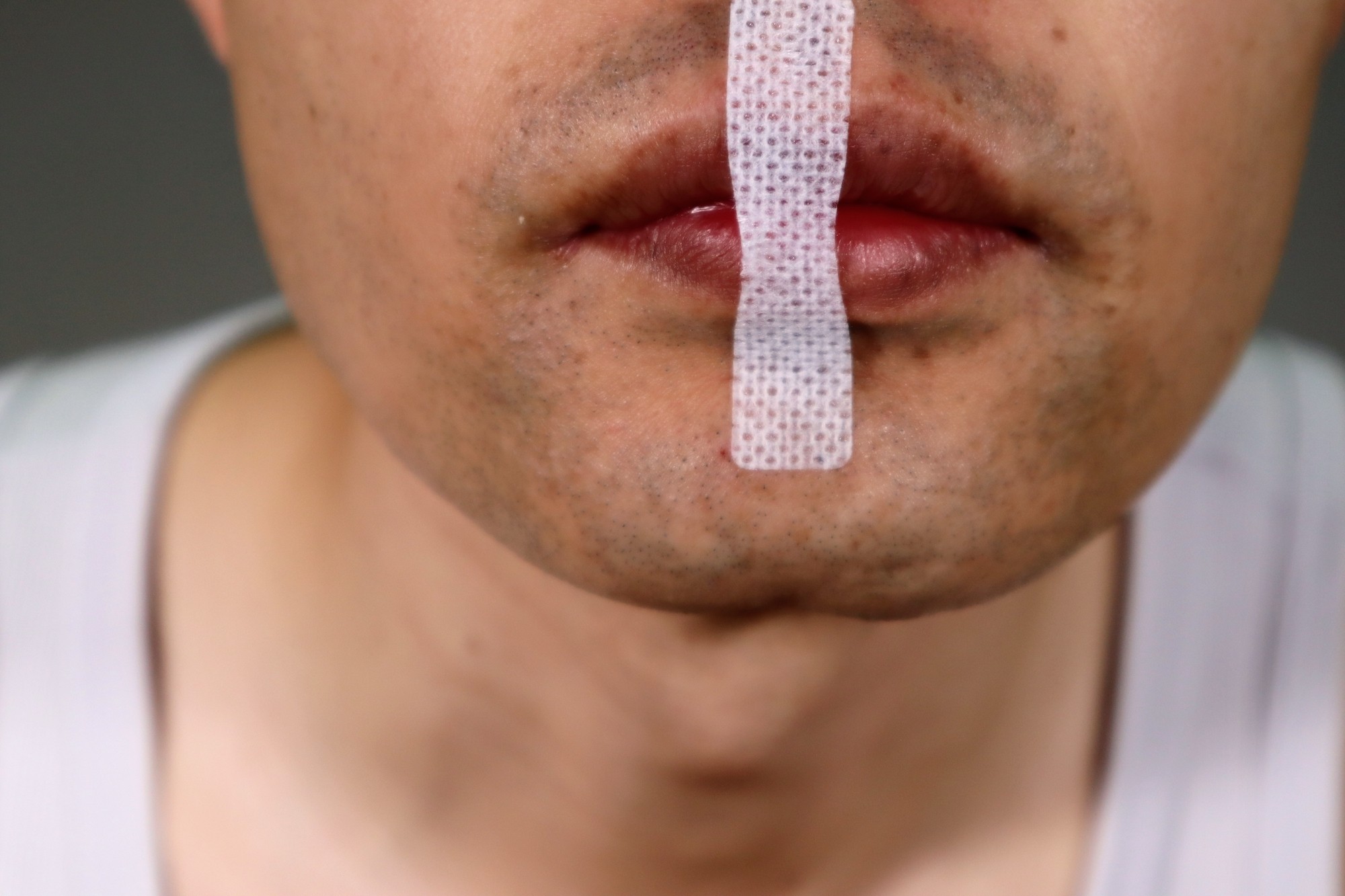
What is Mouth Tape and the Practice of Mouth Taping?
So, what is mouth tape, and what does the practice of mouth taping involve? Essentially, mouth tape is just tape; only it is specially designed to be slightly less adhesive and, therefore, more gentle on the skin than normal tape.
Mouth taping typically involves placing a small piece of specially designed tape over the lips at bedtime. The tape is not meant to forcefully keep the mouth shut but rather to gently encourage it to stay closed, allowing for unobstructed nasal breathing throughout the night.
Why Do People Use Mouth Tape?
People use mouth tape to ensure their mouth is shut while sleeping which promotes nasal breathing instead of mouth breathing. The theory behind it is that by taping the mouth shut, you can prevent mouth breathing, which is associated with various systemic health issues like sleep apnea, snoring, high blood pressure, poor oxygenation, anxiety, tooth decay and bad breath.
Mouth Tape Benefits
The health benefits of mouth tape revolve exclusively around promoting nasal breathing. Nasal breathing is the optimal mode of breathing for humans for many reasons. It ensures the following:
- Filtration
- Oxygenation
- Proper facial growth
- Oral health
Filtration
The nasal passage is made up of a complex system of hairs and mucous membranes that filter, warm, and humidify air entering the body. This process removes particles and pathogens and thereby protects against infections and irritation. For this reason, people who breathe their nose often have better immunity and contract fewer viruses and infections.
Oxygenation
Nasal breathing encourages deeper, diaphragmatic breathing rather than shallow chest breathing. This increases CO2 levels in the blood, which in turn helps oxygen to be more efficiently released from haemoglobin into the body's cells - ultimately better supporting organs and bodily functions.
Nasal breathing also facilitates the production of nitric oxide, which helps to widen blood vessels and, in turn, improves oxygen circulation throughout the body.
Proper Facial Growth
Nasal breathing ensures proper tongue posture - where the tongue sits on the roof of the mouth at rest. This widens the upper jaw and forces the jaws to grow forward (instead of downwards) - ultimately creating straight teeth and a defined jawline. To learn more about tongue posture, click here.
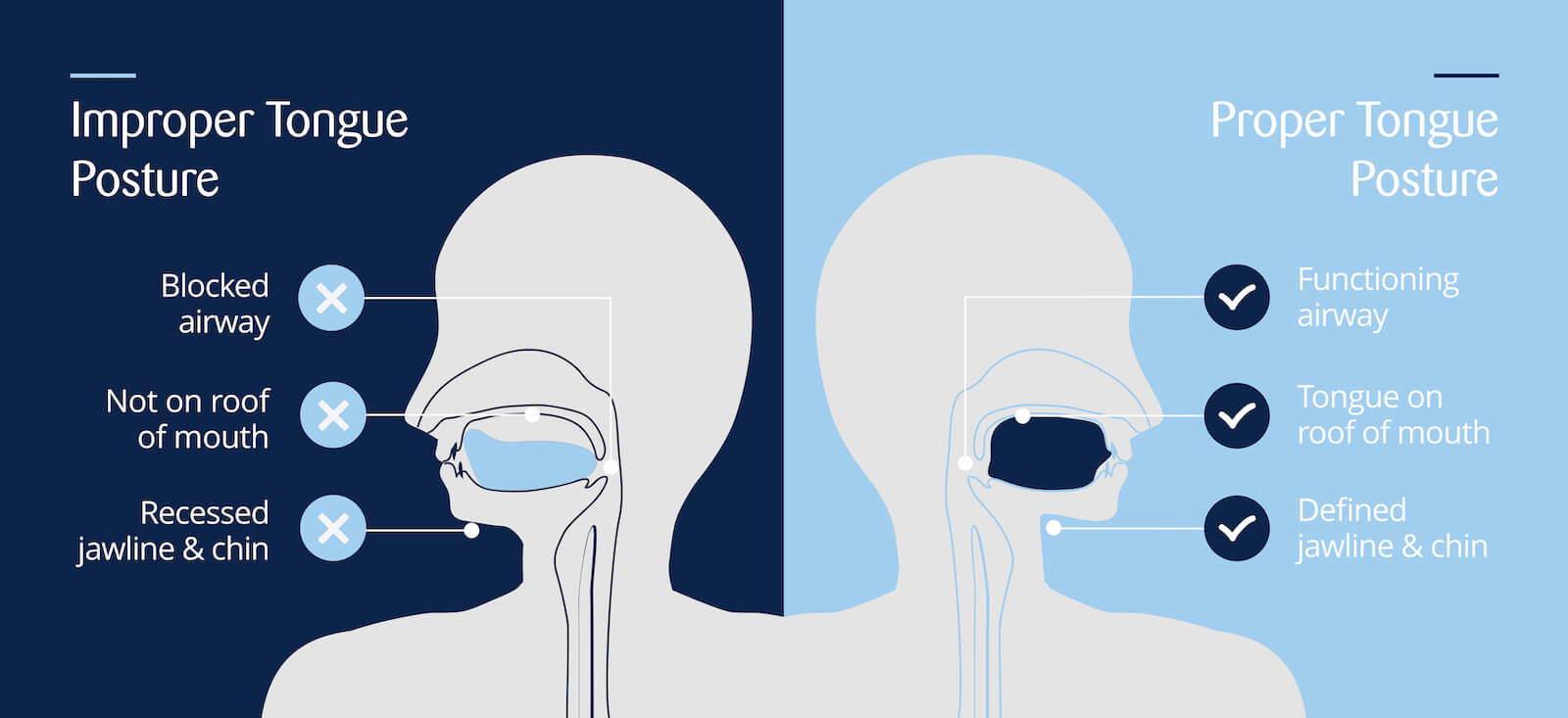
Oral Health
When the mouth is closed, it can produce sufficient saliva, which is critical to clearing the mouth of food
particles and maintaining pH balance. Mouth breathing, on the other hand, inhibits saliva production and
ultimately results in tooth decay, poor oral health and sometimes even gum disease.
Why People Use Mouth Tape: The Problems With Mouth Breathing
Mouth breathing, on the other hand, will compromise and hinder filtration, oxygenation, facial growth and oral health - ultimately causing a host of systemic health problems to arise. Some of the most common symptoms of mouth breathing are:
- Snoring
- Sleep apnea
- Fatigue
- Brain fog
- Cognitive decline
- Learning difficulties (in children)
- Weaker immune system
- Tooth decay
- Crooked teeth
- Gum disease
- Jaw problems (TMJ issues)
Mouth Tape for Sleep
One of the main benefits of mouth tape is that it can help improve sleep quality. Mouth tape can benefit sleep in the following ways:
- Better oxygenation
- Promotes relaxation
- Humidifying airway
- Preventing snoring
Mouth Tape Can Improve Oxygenation
Nasal breathing improves blood flow and oxygen delivery to tissues, enhancing sleep quality. So, by improving oxygenation, mouth tape can improve sleep quality.
Mouth Tape Can Improve Relaxation
Nasal breathing calms the nervous system, which regulates heart rate and respiratory rate. Mouth tape can help calm the nervous system and facilitate deeper sleep by promoting nasal breathing.
Mouth Tape Can Help Humidify the Airway
Nasal breathing helps maintain optimal humidity in the airways, preventing dryness that can lead to wakefulness. By reducing the likelihood of wakefulness, mouth tape can improve sleep quality—especially over a long period.
Mouth Tape for Snoring
Research has shown that people with sleep apnea snore less after mouth taping. This is because humidifying the
airway results in less dryness and irritation, and by promoting nasal breathing, there are fewer
vibrations of soft tissue in the throat (a common cause of the snoring sound).
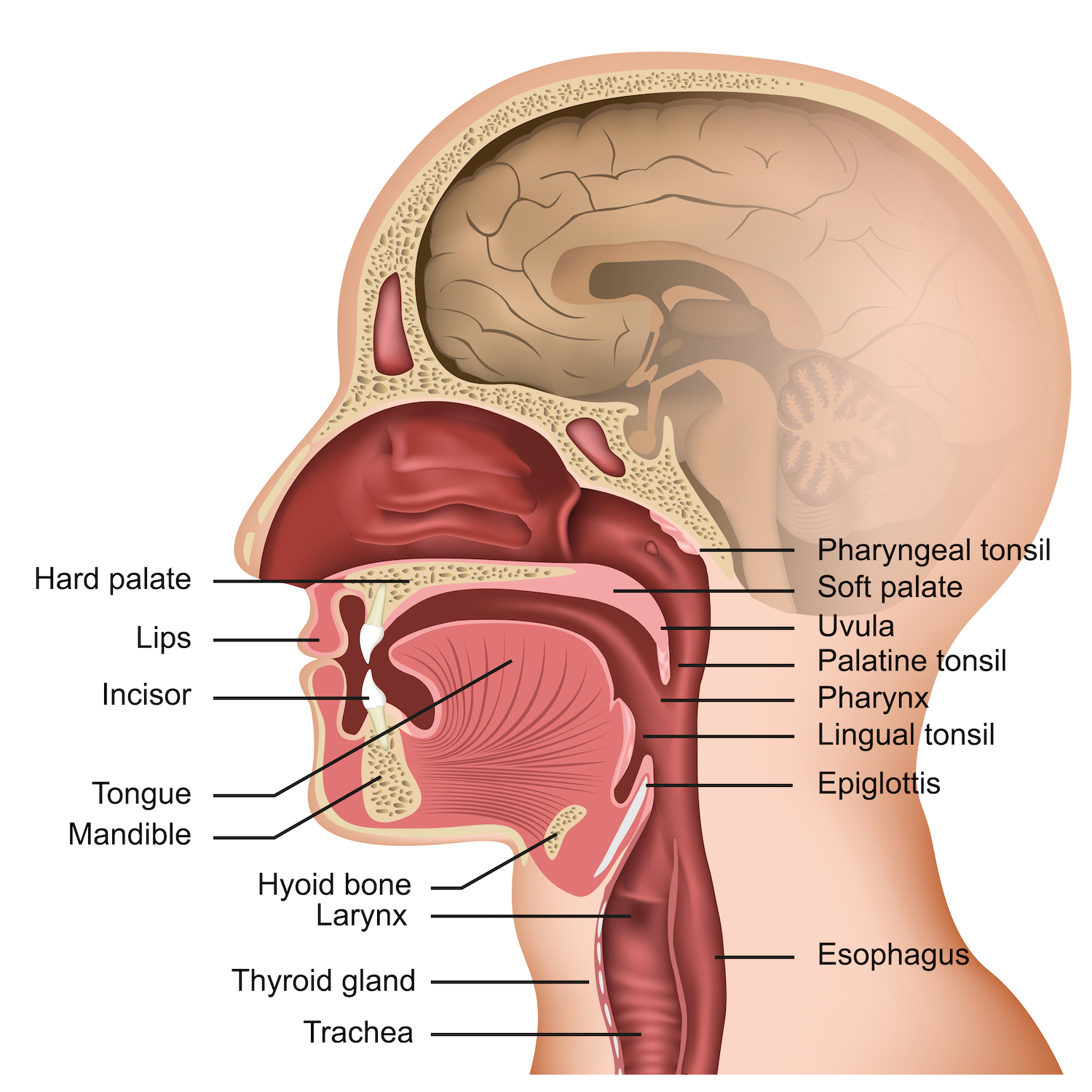
Why is Tongue Posture So Important?
One of the key benefits of mouth tape and mouth taping is to promote proper tongue posture. Here's what tongue posture is and why it's so important...
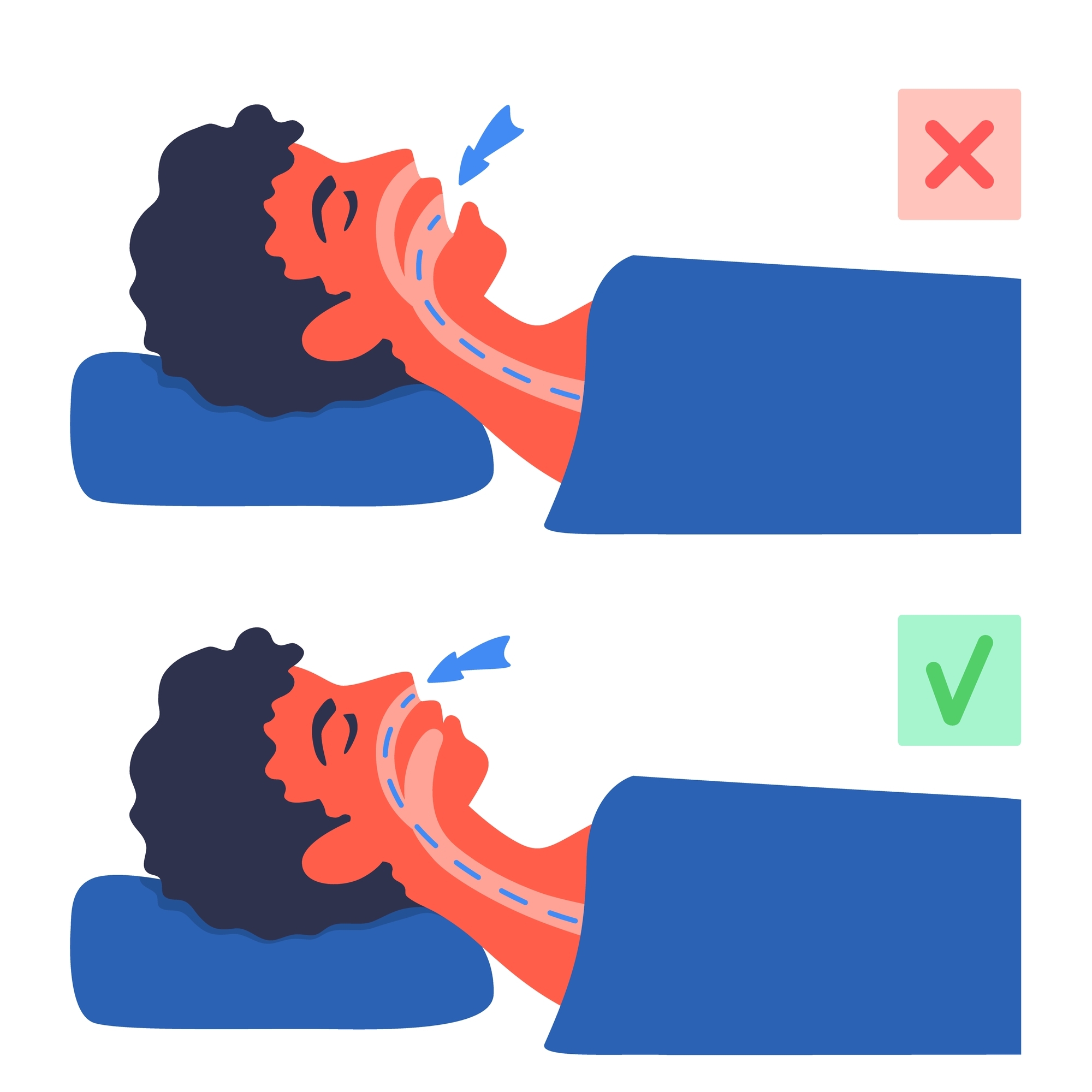
How Mouth Breathing Causes Tooth Decay
Mouth tape and mouth taping promotes nasal breathing which is better for oral health. Here's how mouth breathing can cause tooth decay...
Our Thoughts on Mouth Tape: Does Mouth Taping Work and Should You Do It?
Even before mouth tape and mouth taping became a viral social media sensation, we have been recommending it to our patients - especially parents and their children whom we treat with orthotropics.
For years, we have suggested that parents tape their children's mouths at night to promote nasal breathing as part of our orthotropic treatment. We have found that mouth taping assists the child in building the habit of breathing through their nose instead of the mouth, which in turn forces their tongue onto the roof of their mouth and promotes proper facial growth and development.
Outside of our orthotropic treatment, we also advocate nasal breathing as opposed to mouth breathing because it promotes better oral and total body health. Thus, we are generally in favour of mouth tape and mouth taping (especially for sleep and snoring). However, we would place a few important caveats.
Mouth Tape Will Not Work For Everyone!
Despite the benefits of mouth tape, it is important to note that it will not work for everyone. Perhaps the only downside to mouth tape going viral recently is that many now view it as a silver bullet for health. Unfortunately, mouth tape isn't a viable option for everyone because so many people cannot properly breathe through their noses.
If you cannot breathe through your nose properly, mouth tape will likely do nothing for you. In fact, it will just make it difficult to breathe and further restrict an already limited oxygen supply, causing more problems.
Why Won't Mouth Tape Work For Some People
Mouth tape won't work for people who suffer from airway issues and cannot breathe through their nose. These airway issues may be caused the following:
- Allergies
- Poor diet
- Constant congestion
- Low immunity
- Deviated septum
- Thumb sucking (in children)
What to do if You Can't Use Mouth Tape Because You Can't Breath Through Your Nose
If you cannot breathe through your nose, mouth tape will not work. Instead, we suggest visiting a health
practitioner
who specialises in or has a comprehensive understanding of mouth breathing and its causes. This could be a holistic
dentist—particularly
those who practice orthotropics (like us)—or an ear, nose, and throat (ENT) specialist.

Treating Mouth Breathing Through Orthotropics
Orthotropics and mouth tape look to achieve the same objectives: nasal breathing and proper tongue posture. Learn more about orthotropics here...
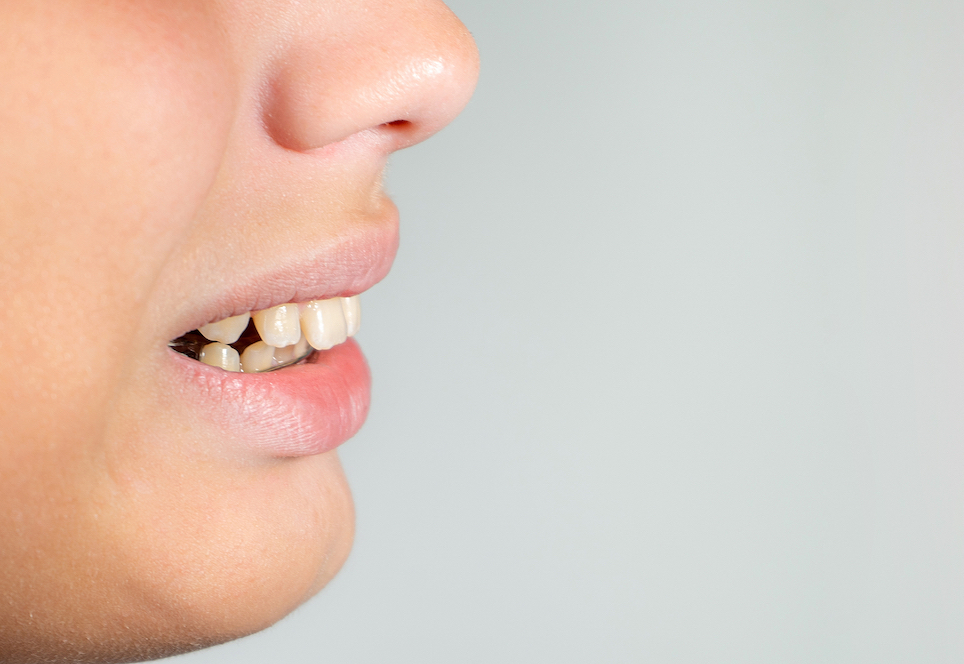
How Mouth Breathing Causes Crooked Teeth
Mouth tape looks to promote nasal breathing instead of mouth breathing. Here's how mouth breathing causes crooked teeth...
